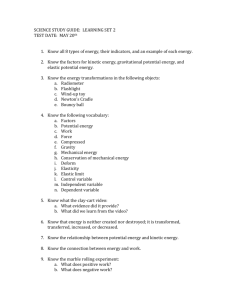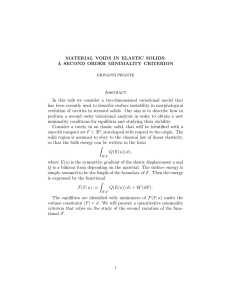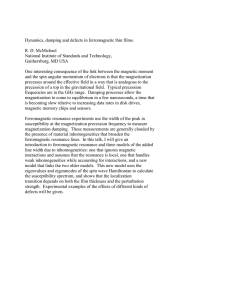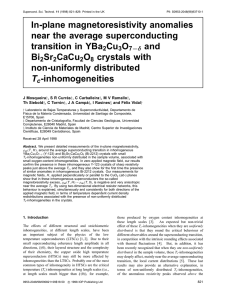Co-authors: George J. Weng
advertisement
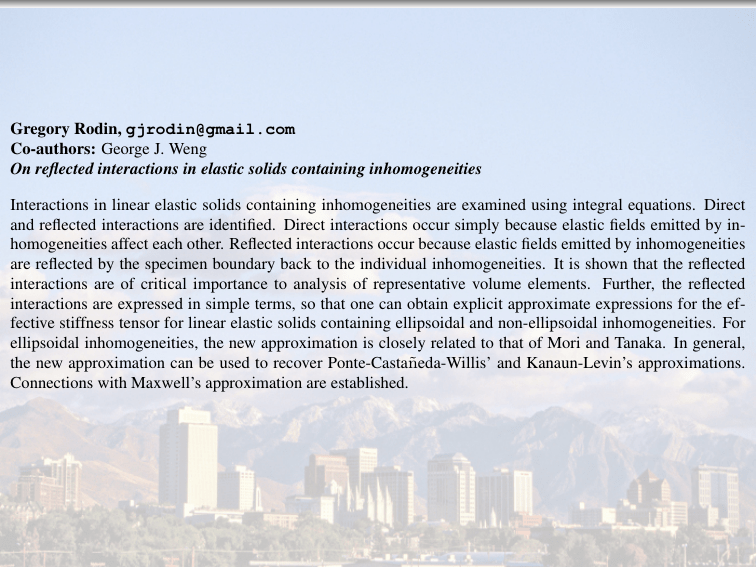
Gregory Rodin, gjrodin@gmail.com Co-authors: George J. Weng On reflected interactions in elastic solids containing inhomogeneities Interactions in linear elastic solids containing inhomogeneities are examined using integral equations. Direct and reflected interactions are identified. Direct interactions occur simply because elastic fields emitted by inhomogeneities affect each other. Reflected interactions occur because elastic fields emitted by inhomogeneities are reflected by the specimen boundary back to the individual inhomogeneities. It is shown that the reflected interactions are of critical importance to analysis of representative volume elements. Further, the reflected interactions are expressed in simple terms, so that one can obtain explicit approximate expressions for the effective stiffness tensor for linear elastic solids containing ellipsoidal and non-ellipsoidal inhomogeneities. For ellipsoidal inhomogeneities, the new approximation is closely related to that of Mori and Tanaka. In general, the new approximation can be used to recover Ponte-Castañeda-Willis’ and Kanaun-Levin’s approximations. Connections with Maxwell’s approximation are established.

